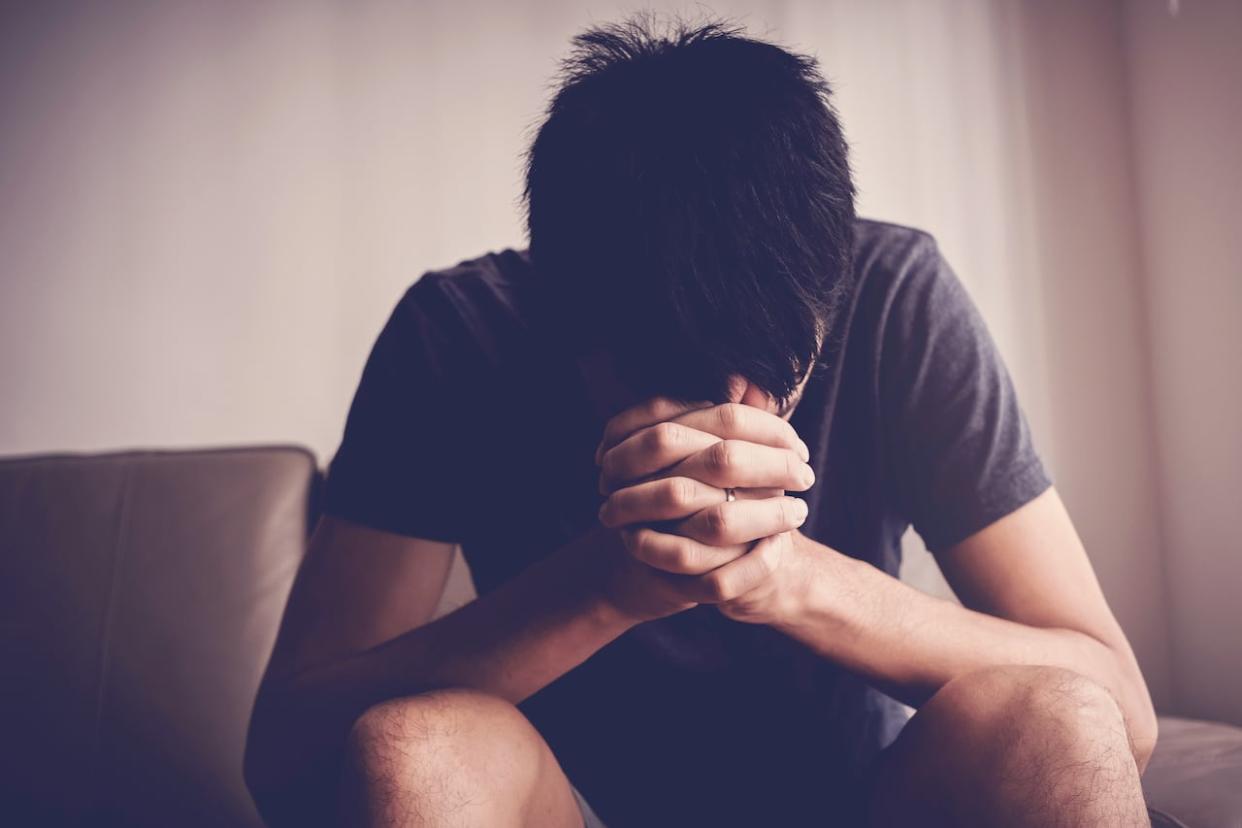New study finds young men at risk for depression, anxiety

Nearly half of men aged 19 to 29 are at risk of moderate to severe depression. When it comes to moderate to high anxiety, that number climbs to 57 per cent. Gay, bisexual and racialized men are also at increased risk in both categories.
These are the findings of a recent study conducted by the Canadian Men's Health Foundation, the Vancouver-based non-profit dedicated to creating awareness around men's health issues.
National Men's Health Week runs from June 10-16 and the foundation is hoping the results of the study will draw attention to the mental health struggles many men experience.
"There's a long tradition of men being independent, self-sufficient and not acknowledging what's going on in their internal landscape," says Dr. David Kuhl, who works on men's health issues with the foundation.
"I can ask my neighbour to help me fix a lawn mower, but I'll be really shy before I say to somebody, 'you know, I'm not feeling so good about life right now.'"
He adds that results from the study indicate that we need to do better when it comes to creating opportunities for men to share. He believes it would go a long way in preventing men from isolating themselves and suffering in silence.
Chronic Illness and mental well-being
According to Kuhl, men are far less likely than women to seek support after being diagnosed with a chronic illness. Women will often talk to friends and family about their feelings and they may also seek to connect with others experiencing the same thing.
Men may confide in a spouse or partner, but are far less likely to tell friends, talk to a therapist or to join a support group to help manage their condition.

Daniel Landry was diagnosed with Peyronie's Disease in early 2023. He says seeking help and sharing his story has helped him to deal with his diagnosis. (Submitted by Daniel Landry)
He adds that men diagnosed with conditions that affect sexual health, like testicular cancer or erectile dysfunction, are even less likely to be open about their feelings.
That was the case for Daniel Landry of Shediac. In early 2023, he was diagnosed with Peyronie's disease, a chronic illness he'd never heard of that affects only men. The disease involves the hardening or calcification of penile tissue. It brings a host of complications, such as pain, physical deformity and an inability to perform sexually.
"It takes your manhood away," he said. "I'm not going to die of Peyronie's but I have to live with the fact my ability to have sex is gone, all of it's gone."
Peyronie's disease affects 10 per cent of men, mostly over 40, but doctors believe the real number may be double that for the very fact men are less likely to visit their doctor or discuss their symptoms. There is no cure, and treatments such as medications, traction therapy and surgery, offer mixed results.
While the disease is not life-threatening, Landry says it's been life altering. The diagnosis left him feeling hopeless and extremely depressed. It was only after speaking to a longtime friend that he realized how the shame he felt was affecting him and other men.
"I said I had Peyronie's, and his face fell," Landry recalls, after mentioning his upcoming appointment with a urologist. "Next words that came out of his mouth were, 'Daniel, I have Peyronie's. I've had it for six years.'"

Dr. David Kuhl says men are far less likely than women to seek support after being diagnosed with a chronic illness. (Submitted by David Kuhl)
Landry was shocked. It opened his eyes to the silence that many men subject themselves to when it comes to their health and mental well-being.
"Most men will live in the dark with this. They will never share it, they will never talk about it," he added.
It's stories like Landry's that reaffirm to Kuhl the importance of the results of the foundation's study. He hopes the findings will create greater awareness about mental health and encourage more men to speak openly about their feelings.
"There is support available," said Kuhl. "We really need to invite men and say, 'Asking for help is not just to your benefit, it's for the benefit of those you love as well'."
As for Landry, he says sharing his story and talking openly about his feelings has helped put him on the right track. He's feeling more optimistic about his situation and has decided to get surgery in the fall.
"There is a pot of gold at the end of the rainbow. I have accepted that I have Peyronie's," he said. "I think opening up was key, when I started talking to people and not being ashamed any more. It's hard to believe, but that was one of the key things."
To find support services: 811 is a free national 24-hour health information line that can direct callers to local support resources.
For men: The Canadian Men's Health Foundation has an anonymous self-assessment tool online for men trying to understand feelings of depression or anxiety. The website also lists resources listed as to where to get help.

 Yahoo News
Yahoo News 
